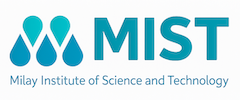Field Service Technician (Calibration Specialty)

The Field Service Technician Certificate (Calibration Specialty) provides foundational training in the theory, standards, and application of precision calibration across laboratory, biomedical, and industrial environments.
Students will learn to work with a variety of measuring instruments—such as calipers, micrometers, multimeters, pressure gauges, and temperature sensors—and will develop competencies in traceability, uncertainty, tolerance limits, and documentation aligned with ISO/IEC 17025 and ANSI/NCSL Z540 calibration standards.
This program is ideal for individuals seeking entry-level positions as calibration technicians, metrology assistants, or equipment validation specialists in labs, manufacturing facilities, or service organizations.
Program Details:
-
Total Clock Hours: 60–75 hours
-
Program Duration: 4–5 weeks
-
Delivery Format: Blended (Online + Hands-On Labs)
-
Credential Awarded: Certificate of Completion
-
Prerequisites: High school diploma or equivalent
Program Objectives:
By the end of this course, students will be able to:
-
Describe calibration principles and traceability standards.
-
Identify common instrument types and interpret manufacturer tolerances.
-
Perform standard calibration procedures using mechanical and electronic tools.
-
Calculate uncertainty and validate instrument performance.
-
Complete calibration reports, certificates, and quality documentation.
-
Align work with compliance standards such as ISO 17025 and ANSI/NCSL Z540.
Curriculum Outline Summary:
| Module | Title | Clock Hours | Description |
|---|---|---|---|
| Module 1 | Metrology Fundamentals & Standards | 10–12 hrs | Covers measurement systems, SI units, traceability, and the importance of calibration in regulated industries. |
| Module 2 | Instrument Types & Functional Use | 12–15 hrs | Introduction to calipers, micrometers, digital multimeters, signal generators, pressure gauges, and thermometers. |
| Module 3 | Calibration Procedures & Documentation | 15–18 hrs | Hands-on procedures for calibration, establishing tolerances, and interpreting equipment specifications. |
| Module 4 | Uncertainty & Error Analysis | 10–12 hrs | Basic statistics for calibration, uncertainty budgets, measurement repeatability, and out-of-tolerance responses. |
| Module 5 | Lab Practicum: Bench Calibration & Simulation | 12–15 hrs | Includes simulator-based calibration tasks, fault analysis, report creation, and mock audits. |
| Capstone Project | Final Calibration Report & Practical Test | 5 hrs | Simulated equipment calibration task and full documentation package submission. |
Course Materials:
-
Textbook: Calibration: Philosophy in Practice (3rd Edition) by Fluke Calibration – ISBN: 9781889101037
-
Student Workbook: Milay Institute’s Calibration Technician Lab Manual
-
Lab Tools Provided: Digital/analog calipers, micrometers, calibration weights, multimeter simulators, pressure test stands, sample log sheets
Optional:
-
Externship Placement (Optional, 40 hrs):
Students may complete additional calibration practice or shadow a working technician at one of Milay’s partner facilities. Participation is optional but encouraged to gain field context and employer exposure.
Here’s an up‑to‑date job outlook and salary analysis for the Calibration Technician profession, especially in Bay Area metro regions like San Francisco, San Jose, Oakland, and Sacramento—along with key career advantages:
National Outlook & Demand
-
The U.S. Bureau of Labor Statistics reports that Calibration Technologists and Technicians earned a median annual wage of $65,040 in May 2024, or about $31.27/hour.(Bureau of Labor Statistics)
-
Employment is projected to grow at 6% between 2023 and 2033, which is faster than average, with approximately 1,300 job openings per year from growth and turnover.(Bureau of Labor Statistics)
-
These roles are designated “Bright Outlook” occupations by O*NET due to strong demand and expected openings.(O*NET OnLine)
Bay Area Salary Estimates
San Francisco & Oakland–Berkeley Area
-
SalaryExpert estimates for Calibration Technician III roles in San Francisco average $103,722/year in advanced positions.(Salary.com)
-
Indeed listings confirm local pay ranges at $25–$45/hour depending on employer and experience.(Indeed)
San Jose (Silicon Valley)
-
Average salary is reported at $89,783/year (~$43/hour) by ERI, with senior-level range up to $108K.(ERI Economic Research Institute)
California & Sacramento Region
-
For Calibration Technician I roles, California-wide estimated range: $60,249 (25th percentile) to $75,613 (75th percentile).(Salary.com)
Estimated Regional Salaries
| Metro Area | Typical Range | Notes |
|---|---|---|
| San Francisco / Oakland | $65K – $100K+ | Higher-end roles exceed $100K |
| San Jose | ~$90K average; $40–43/hr | Premium Silicon Valley rates |
| Sacramento & CA general | $60K–$75K | Entry to mid-level positions |
Why Calibration Technician Careers Are Attractive
✅ Specialized Skillset with Less Competition
-
These roles require precision, traceability, and technical judgment—skills not commonly found in general technician pools.
✅ Accessible Entry with Solid Compensation
-
Most positions require only a high school diploma or trade program completion.
-
Immediate wage gains and rising demand outweigh many entry-level technical positions.
✅ Industry Exposure & Career Mobility
-
Technicians work across sectors: biotech firms, manufacturing, labs, aerospace, and research facilities.
-
Certification opportunities (e.g., ASQ CCT), specialization, and stackable skills like calibration, water purification, and microscopy boost long‑term advancement.
✅ Steady, In-Demand Field
-
As devices and systems become more automated and regulated, employers need technicians to ensure accuracy and compliance—sustaining demand even as self-calibrating systems increase.
✅ Summary
-
Job Growth: 6% national rise projects ~1,300 openings/year.(Salary Expert, Bureau of Labor Statistics)
-
Salary Range: $60K–$65K median nationally; Bay Area averages range $90K–$100K+, with senior roles reaching $105K+.(Salary.com, ERI Economic Research Institute)
-
Career Appeal:
-
Entry accessible with fast on-ramp training
-
Specialized roles with limited competition
-
Growth potential into high-level technical careers
-
By offering hands-on, career-aligned training through Milay Institute, students are positioned to enter this career field quickly—armed with practical technical skills that employers actively seek.
Ready to use this data in your program materials, website, or promotional flyers? I can also draft regional placement board sheets or career outcome posts if desired.

